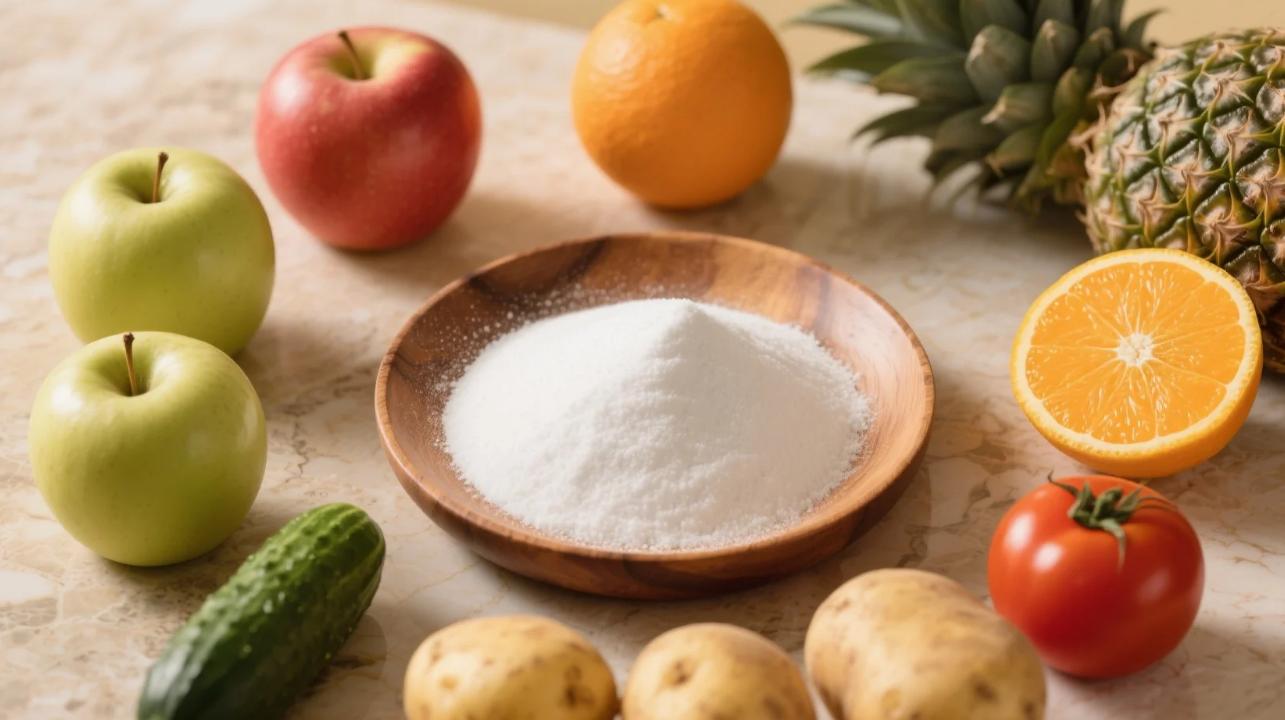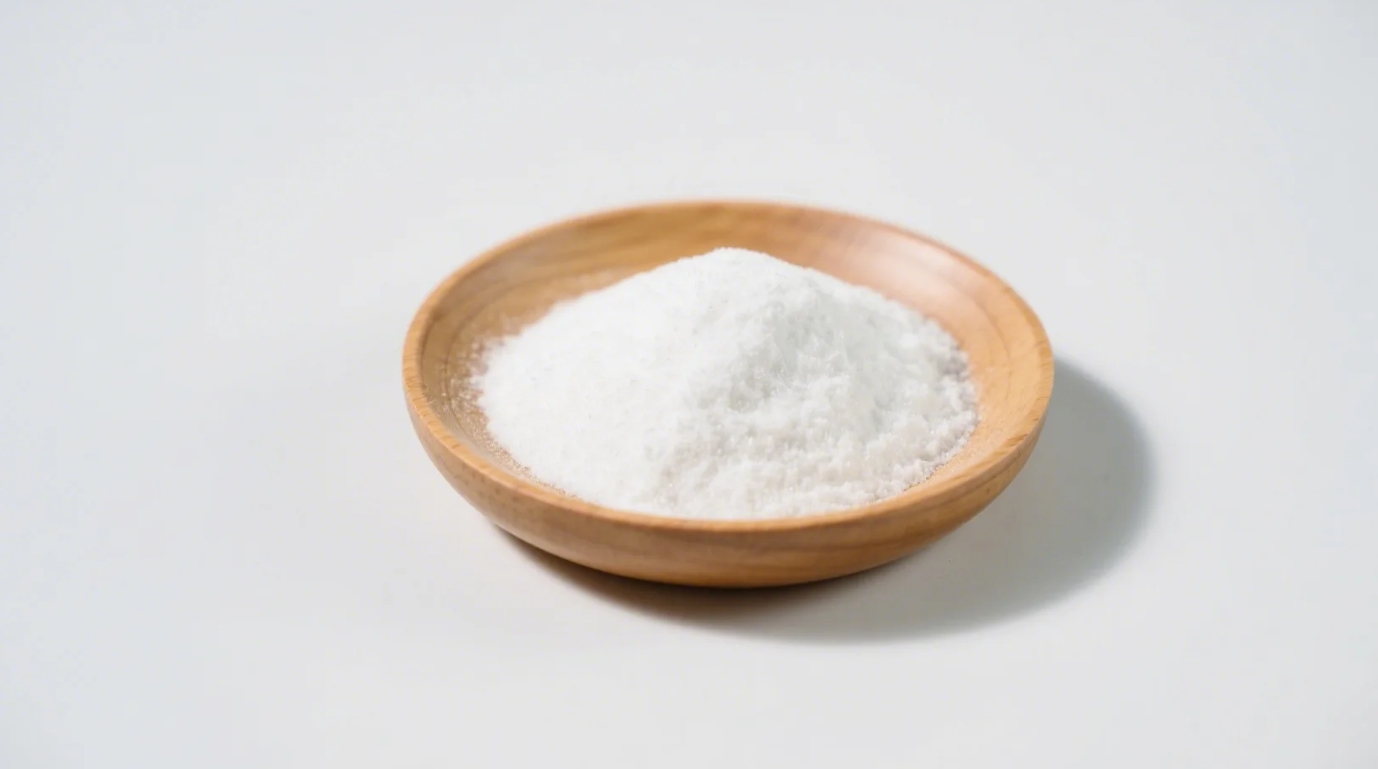As clean-label demand explodes, many brands face a dilemma: how to reduce refined sugars without sacrificing functionality or flavor. Organic dextrose powder—a crystallized glucose from non-GMO plants—emerges as a surprisingly versatile solution. But does it truly deliver?
The Cleansweep Advantage: Simplicity Over Syrups
Unlike complex sweetener blends needing masking agents, organic dextrose offers:
- 20% less sweetness than sucrose: Allows delicate flavors to shine
- Ultra-fine solubility: Dissolves instantly in cold beverages (no grittiness)
- Fermentation friendliness: Yeasts metabolize it 40% faster than sucrose → ideal for sourdough, beer, or kombucha
► Formulator’s Note: Replaces corn syrup solids in ice cream without recrystallization issues.
Blood Sugar Realities: Not All Sugars Are Equal
While still a simple carb, organic dextrose differs from refined counterparts:
| Metric | Refined White Sugar | Organic Cane Sugar | Organic Dextrose |
|---|---|---|---|
| Glycemic Index | 65 | 65 | 100 |
| Purity | 99.9% sucrose | 97% sucrose | 99% glucose |
| Processing | Bone char filtering | Sulfur bleaching | Enzyme-only hydrolysis |
Key Insight:
- Faster energy delivery: Preferred by athletes over sucrose for rapid glycogen replenishment
- Lower fructose load: Zero fructose vs. sucrose’s 50% → reduces liver fat accumulation risk
Clean-Label Chemistry: The Invisible Upgrade
Organic certification requires:
Non-GMO feedstock (e.g., EU-certified organic tapioca or corn)
No chemical bleaching (unlike refined sugar’s sulfur dioxide)
Traceable enzymes (non-animal derived)
Unexpected Benefit: Creates superior Maillard browning in baked goods versus coconut sugar → deeper crust colors with 18% less baking time.
Cost vs. Functionality: The Break-Even Analysis
Replacing refined sugars with organic dextrose impacts margins but delivers ROI through:
- Clean-label premiums: 68% of consumers pay 20% more for “organic glucose” vs. “sugar”
- Process efficiencies: Mixes 50% faster than erythritol blends → cuts production time
- Shelf-life extension: 33% lower moisture absorption → keeps granola crisp 3 weeks longer
✦ Real-World Case: A keto bar brand reduced ingredient listings from 14 to 7 by swapping sugar alcohols with dextrose + soluble fiber.
The Reformulation Playbook: Where It Shines
Fermented Foods: Speeds kimchi/labneh fermentation → cuts production time by 35%
Protein Powders: Masks stevia aftertaste better than allulose
Freeze-Dried Fruits: Prevents structural collapse → yields crispier textures
Applications to Avoid:
- Diabetic-focused products (high GI)
- Long-shelf syrups (crystallizes faster than sucrose)
Sustainability Footprint: Surprisingly Light
Third-party verified advantages:
- Water usage: 17% less than beet sugar processing
- Carbon emissions: 1.1 kg CO₂e/kg vs. refined sugar’s 3.2 kg
- Zero waste: Pulp byproducts become livestock feed
“We switched from organic cane to dextrose in granola clusters—not just for cleaner labels, but to hit carbon neutrality goals.”
— Production Director, Scandinavian Functional Foods
The Verdict: Context Is Key
YES for: Baking mixes, fermentation substrates, sports nutrition, clean-label confections
NO for: Diabetic-friendly lines, prolonged-shelf syrups
Optimal Replacement Ratio:
- Replace up to 70% sucrose in formulations without texture compromise
- Boost with prebiotic fibers (e.g., acacia) to offset glycemic impact
Critical Next Steps for Brands:
- Test browning/fermentation reactions in pilot batches
- Verify organic certification (look for USDA/ECOCERT)
- Communicate “pure glucose energy” benefits transparently
“Dextrose isn’t a health food—it’s a functionally superior, ethically processed sugar alternative for specific applications. That’s reformulation reality.”
— Dr. Lena Müller, Food Technology Consultant
Sources: Journal of Food Processing & Preservation (2023), EWG Sugar Processing Report, Carbon Trust Sweetener LCA Study
Recommended Product
Organic Dextrose Powder
Natural Energy Source for Food, Beverage, Pharma & Sports Nutrition

